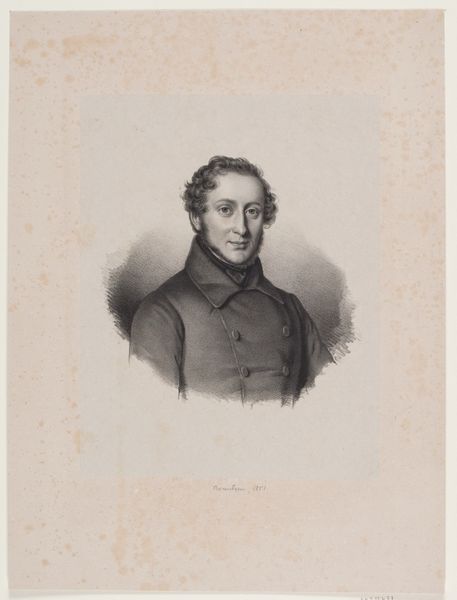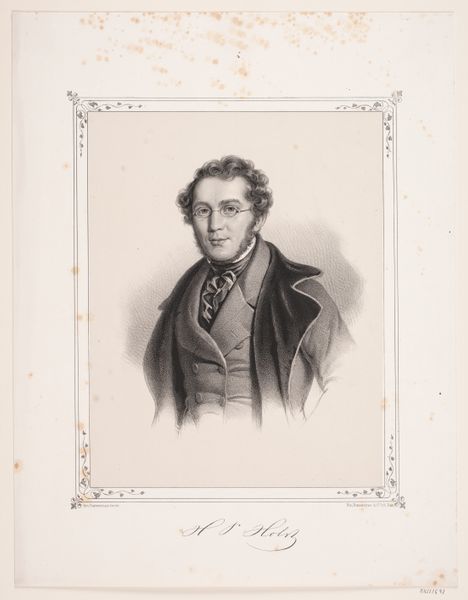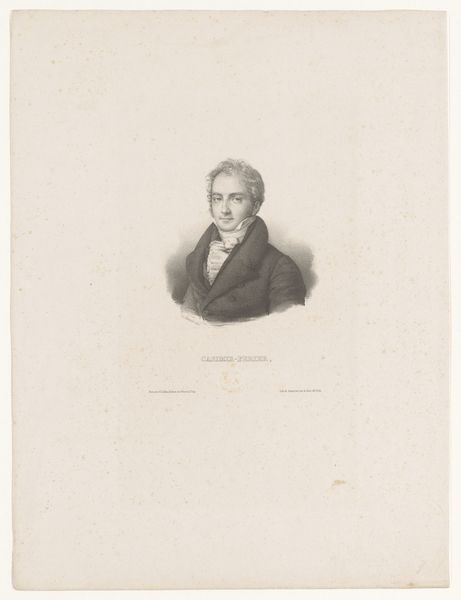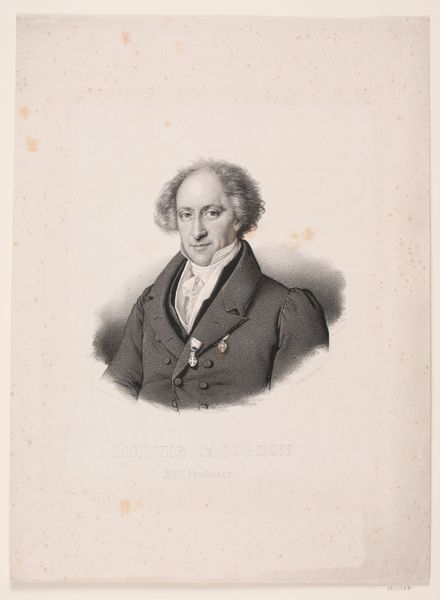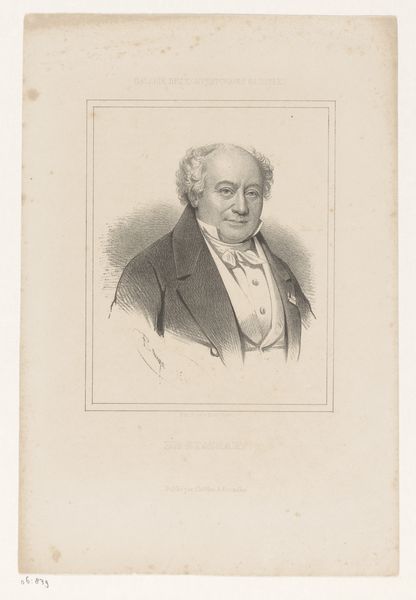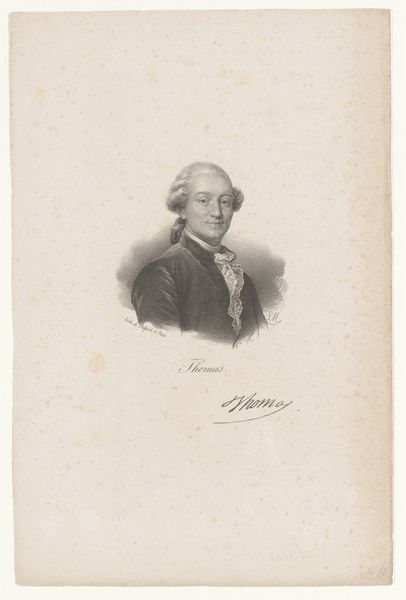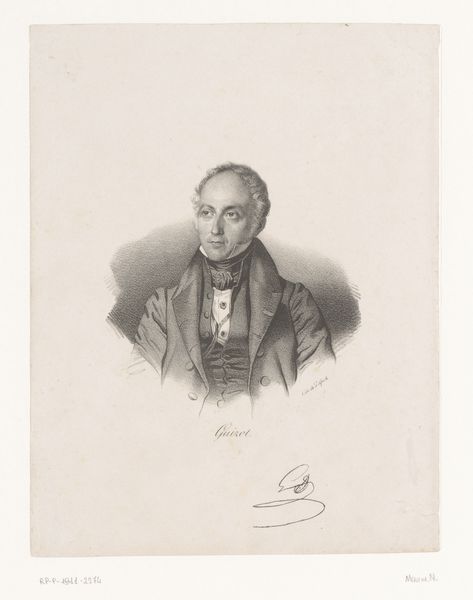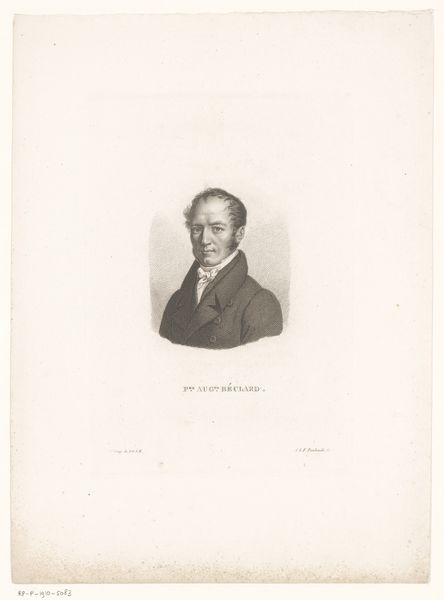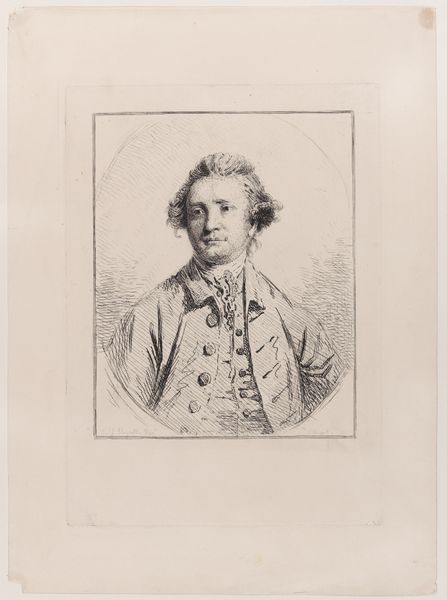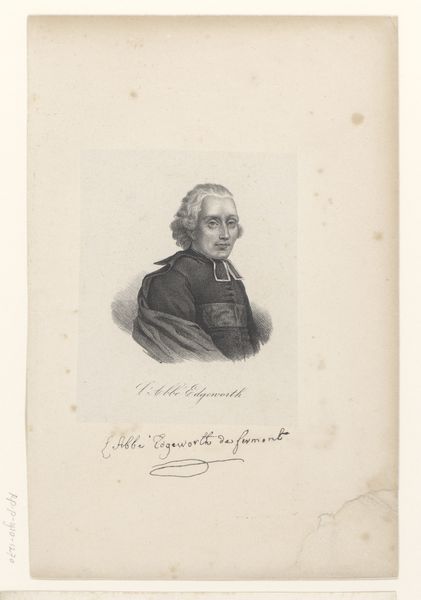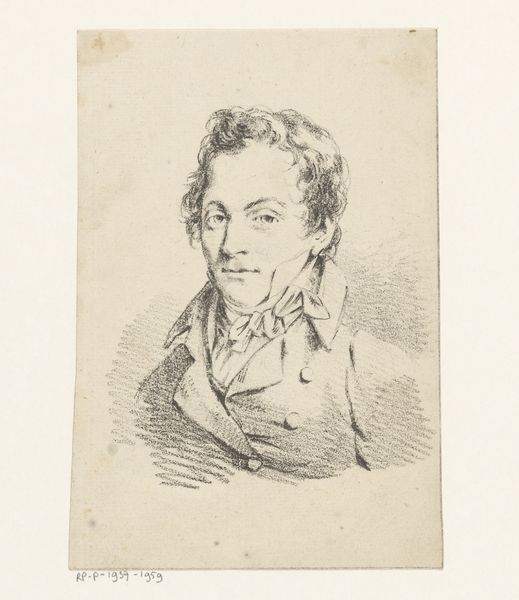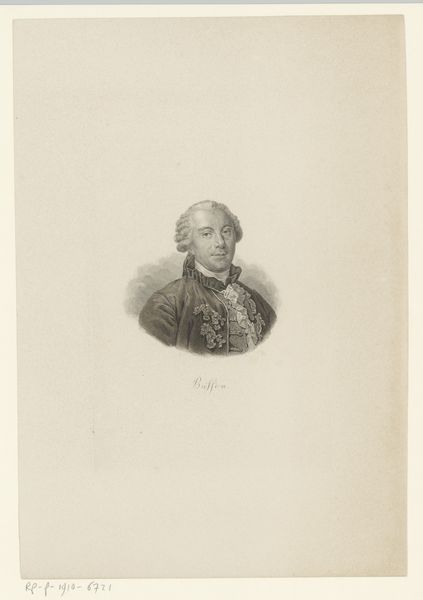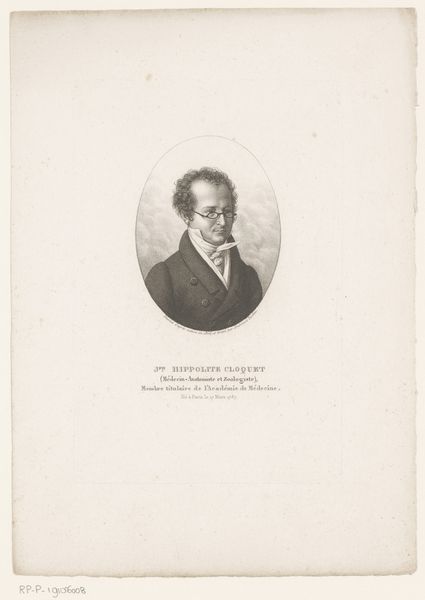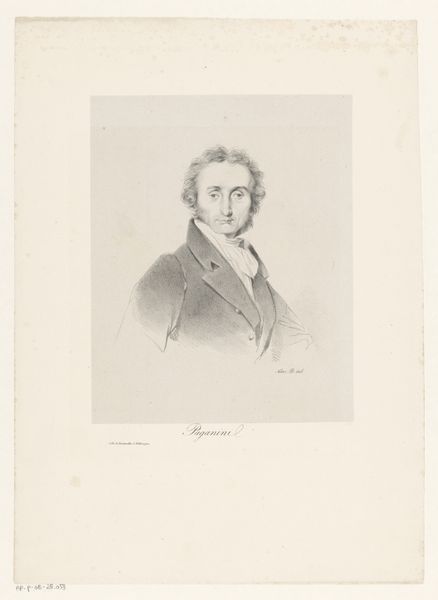
print, engraving
#
portrait
#
pencil drawn
# print
#
pencil sketch
#
old engraving style
#
pencil drawing
#
history-painting
#
engraving
#
realism
Dimensions: height 159 mm, width 114 mm
Copyright: Rijks Museum: Open Domain
Curator: We're looking at a print, titled "Portret van Johann Valentin Adrian". Although undated, it's been attributed to sometime between 1820 and 1899. Editor: My immediate impression is of understated elegance. The subtle hatching and delicate lines create a soft, almost ethereal effect. You wouldn't necessarily guess "print" on first viewing; it feels like a finely executed pencil sketch. Curator: Absolutely. And the medium – engraving on paper – speaks volumes. Printmaking in this period democratized portraiture, making images of individuals like Johann Valentin Adrian accessible to a wider audience beyond the elite who could afford painted portraits. Editor: Exactly, it reflects the rise of the middle class and the growing importance of individual identity in society. Who was Johann Valentin Adrian and why preserve his image in this way? What stories are revealed, and concealed, when translated from life to print? Curator: It is signed in the lower section, indicating the engraver or draughtsman was present during its making. That allows for nuanced textures and gradients using only line work. The print as an object provides direct insight to the materials employed in it’s production and making. Editor: Considering the social aspect further, prints such as this also functioned as important social currency, circulated among networks to establish connections or memorialize those they had been involved with. We see a shift from individual patronage towards wider public reception of these figures. Curator: A transition mirrored in its production – think about workshops and apprentices. The process wasn't solitary. Its worth recognizing the collaborative nature and specialized labor of printmaking to truly value it. Editor: Good point, viewing art in its social and cultural setting is imperative, because in those settings, prints serve as potent historical documents of their time, reflecting contemporary views of individuality and societal hierarchies. Curator: Indeed, these small objects encode immense cultural information if we simply understand the ways they came to be. Editor: An understated masterpiece of its time! Thanks for offering up this view. Curator: It's been a great pleasure for me to see you use that historical frame.
Comments
No comments
Be the first to comment and join the conversation on the ultimate creative platform.
